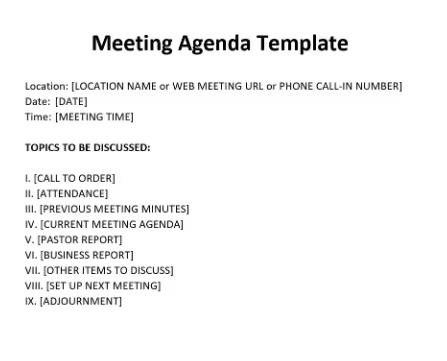What Are Considered Actionable Items?
Defining Actionable Items in Project Management
In the realm of project management and team collaboration, actionable items—or action items—are specific tasks that are clearly defined, assigned, and scheduled within the scope of a project or process. These are the driving forces that ensure progress toward project goals, marked by their clarity, urgency, and essential role in the workflow.

Characteristics of Actionable Items
Specificity and Clarity: The most effective action items are expressed in clear, concise terms. For example, "Submit a detailed report on market analytics for the Q2 product launch by April 20, 2024," leaves no room for misunderstanding about what needs to be done.
Assigned and Accountable: Each action item is explicitly assigned to an individual or a team, ensuring that there is a clear understanding of who is responsible for its execution. This assignment facilitates accountability and tracking within the project management framework.
Deadline-Oriented: Deadlines are crucial for actionable items, aligning them with the project's timeline and priorities. Setting a specific due date helps integrate these tasks into the larger schedule, maintaining momentum and preventing bottlenecks.
Data-Driven Insights on Actionable Items
Studies demonstrate the effectiveness of well-structured action items. Research indicates that teams using a systematized approach to define and track action items can improve their project completion rates by as much as 40%. This is because clear tasks with assigned responsibilities reduce confusion and enhance focus on critical milestones.
Implementing Action Items Effectively
Craft with Precision: Crafting action items with precision means avoiding generalities and focusing on specifics—what needs to be done, by whom, and when. This precision reduces the risk of tasks being overlooked or misinterpreted.
Utilize Project Management Tools: Modern project management tools are invaluable for managing actionable items. These tools provide features for assigning tasks, setting deadlines, and sending reminders, which help keep the project on track.
Maintain Regular Reviews: Regularly reviewing the progress of actionable items is essential. These reviews help ensure that tasks are progressing as planned and allow for timely adjustments if necessary. They also keep all team members aligned and informed.
Avoiding Pitfalls
A common pitfall in managing actionable items is overload—assigning too many tasks to individuals or setting unrealistic deadlines. To counter this, prioritize tasks based on their impact and urgency. Ensure that workloads are balanced and that team members have the resources needed to succeed.
Real-World Example
Imagine a software development team working on a new application. An actionable item for this team might be, "Code the user login functionality using secure protocols by May 5, 2024." This task would be assigned to a specific developer or a team of developers who would then integrate this functionality within the specified timeframe.
Understanding the Impact
When considering what are actionable items, it's essential to view them not just as individual tasks but as integral components of the project's success. They are the steps that each team member must take to drive the project forward, acting as the connective tissue between planning and execution. By defining and managing these items effectively, teams can enhance their productivity and ensure that they meet their project goals efficiently and effectively.